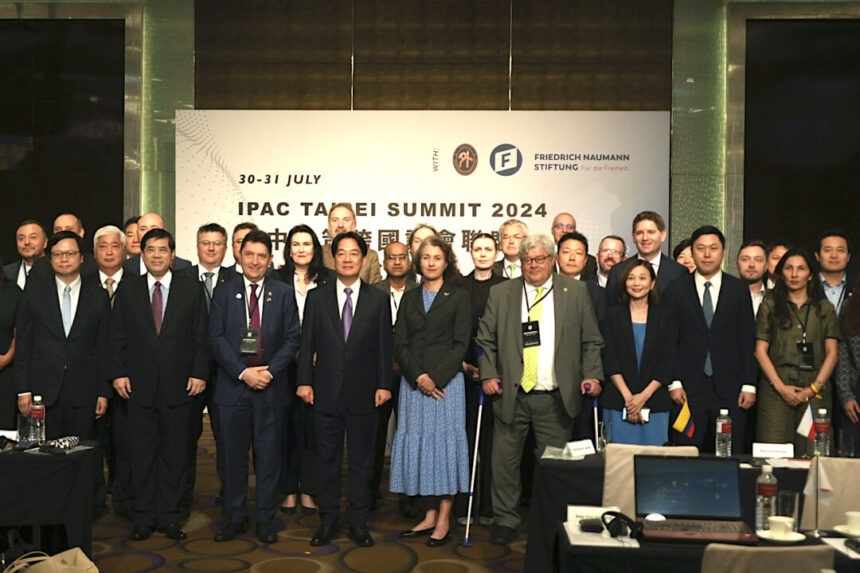An estimated cost of war over Taiwan is equivalent to ten percent of global GDP, according to Independent MP Kevin Vuong, who recently visited the island. He stood alongside global lawmakers to denounce China’s increasing military threat towards the democratic nation.
To put this in perspective, the projected cost is five times higher than the estimated $2 trillion cost of the COVID-19 pandemic and over six times more than the $1.5 trillion cost of Russia’s war on Ukraine. These projections are from
Bloomberg Economics, as highlighted by the Independent MP representing Toronto’s Spadina—Fort York constituency.
“With a projected $10 trillion global economic cost of a war over Taiwan, it is imperative to deter conflict,” Vuong stated on the
X platform on July 30. He also emphasized in a
separate post that Canada, being a maritime trading nation, relies on a free and internationally governed Taiwan Strait for its prosperity.
The Taiwan Strait acts as a division between the democratic Taiwan island and mainland China, led by the communist regime. At its narrowest point, the strait spans about 130 kilometers. Taiwan, Canada’s
12th largest trading partner, faces continuous military coercion, diplomatic pressure, and economic suppression from Beijing.
Vuong’s remarks were made during his visit to Taiwan for the 2024 summit with the Inter-Parliamentary Alliance on China (IPAC), held from July 30 to 31. Lawmakers from various political backgrounds united to address China’s increasing authoritarianism internally and its assertive influence globally.
The IPAC’s fourth annual summit brought together 48 legislators from 24 nations. Aside from Vuong, MP Yves Perron from the Bloc Québécois also participated in the event.
“I attended the Inter-Parliamentary Alliance on China summit in Taiwan recently. International solidarity and backing are vital in safeguarding democracy. Taiwan can rely on the Bloc Québécois going forward,” Perron wrote in French on the
X platform.
Beijing’s Interference
Beijing has faced criticism for pressuring numerous lawmakers to prevent their participation in the IPAC summit in Taiwan.
In a press release dated July 28
released by the organization, it was revealed that at least eight legislators from five countries received emails or calls from Chinese diplomatic officials before heading to the IPAC Summit in Taipei.
“Some lawmakers discovered that their party leadership had been contacted to apply additional pressure. One legislator was specifically urged to visit the PRC [People’s Republic of China] instead of Taipei,” stated IPAC, expressing its disapproval and condemnation of China’s interference attempt.
Apart from political pressure, Vuong
emphasized a Chinese military operation coinciding with the IPAC summit. Taiwan’s Ministry of National Defense
reported on July 31 detecting 29 aircraft and 10 vessels from the Chinese military operating around Taiwan.








